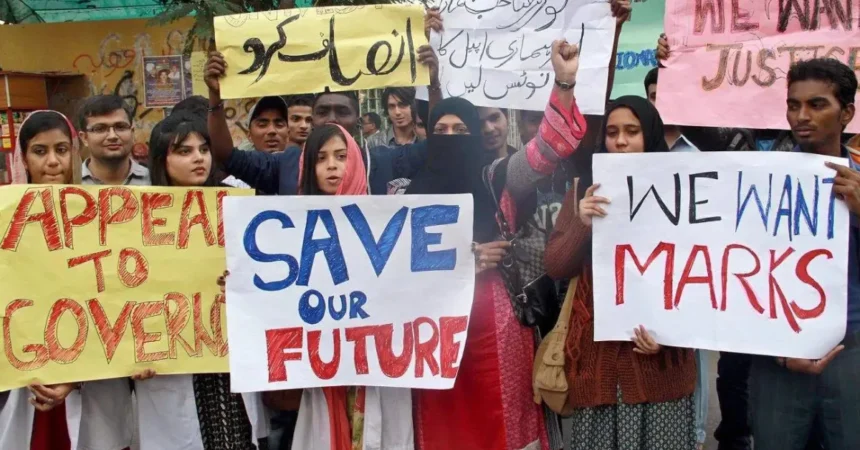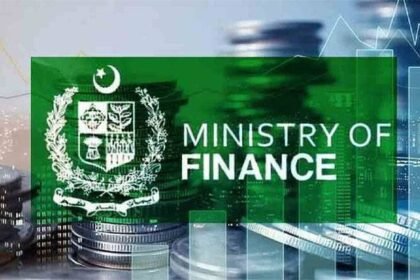Introduction
Karachi University (KU), one of Pakistan’s leading institutions, has become the epicenter of student activism as protests against multiple demands, including significant fee hikes and inadequate facilities, enter their seventh day. The student body has mobilized in large numbers, calling for immediate action from university administration and the government. This article delves into the ongoing protests, the demands of the students, the responses from university officials, and the broader implications for higher education in Pakistan.
Background of the Protests
The protests at Karachi University were sparked by the administration’s decision to increase tuition and other fees. This announcement has drawn ire from students who argue that the hike is unjustified, particularly in light of the poor facilities and services currently offered by the university.
1. Rising Tuition Fees:
The recent hike in fees has been described as exorbitant by students, with many unable to afford the increased costs. Students contend that higher education should be accessible to all, regardless of their financial background. Many families in Karachi are already struggling with economic challenges, making this additional financial burden difficult to manage.
2. Poor Facilities and Services:
Students have also raised concerns about the inadequate facilities available on campus. Issues include insufficient classroom space, outdated libraries, poor internet connectivity, and a lack of access to basic amenities such as clean drinking water and sanitation facilities. The student body argues that while they are paying higher fees, the quality of education and infrastructure has not improved accordingly.
The Current Situation
As the protests enter their seventh day, student activism has gained momentum, with a significant number of students participating in rallies, sit-ins, and marches across campus. The atmosphere remains charged as students express their frustration through chants, placards, and speeches.
1. Student Mobilization:
The protests have seen diverse participation from various student groups, representing a wide range of disciplines and backgrounds. Students have organized themselves into committees to streamline their demands and communicate effectively with the administration.
2. Sit-ins and Rallies:
Daily sit-ins and rallies have become a common sight at Karachi University. The students have taken to the streets, demanding that their voices be heard. The protests have drawn attention not only within the university but also in the broader Karachi community, with many citizens expressing solidarity with the students.
Key Demands of the Students
The student protests are rooted in a series of well-articulated demands aimed at addressing both the immediate financial burdens and the long-term infrastructural issues faced by the university.
1. Reversal of Fee Hikes:
The primary demand is the immediate reversal of the recently implemented fee hikes. Students argue that the increase is not justified given the current state of facilities and the economic difficulties faced by many families. They are advocating for a transparent fee structure that considers the financial capabilities of the student population.
2. Improved Facilities:
Students are calling for substantial improvements in campus facilities. This includes demands for better classrooms, updated libraries with current resources, reliable internet connectivity, and clean drinking water stations. They seek assurances that their tuition fees are being utilized effectively to enhance the learning environment.
3. Increased Financial Aid and Scholarships:
Another crucial demand is the expansion of financial aid and scholarship programs to support underprivileged students. Many students have emphasized the need for a more robust support system that can help those who are struggling to pay for their education.
4. Transparency and Accountability:
The students are also calling for greater transparency and accountability in the university’s financial decisions. They want the administration to disclose how fees are being utilized and to ensure that funds are allocated to improve student facilities and services.
Response from the University Administration
In response to the ongoing protests, the administration of Karachi University has issued statements addressing student concerns. However, many students feel that the responses have been inadequate and lack a genuine commitment to resolving the issues at hand.
1. Official Statements:
University officials have acknowledged the protests and expressed their commitment to engaging with student representatives. However, students have criticized these statements as vague and lacking concrete action plans. Many feel that their concerns are not being taken seriously.
2. Engagement with Student Representatives:
The administration has invited student leaders for discussions to address their demands. However, students have reported that these meetings often result in little more than assurances without any tangible outcomes. The lack of effective communication and follow-through has fueled further frustration among the student body.
Broader Implications for Higher Education in Pakistan
The ongoing protests at Karachi University highlight broader issues within the higher education system in Pakistan. The situation underscores the challenges faced by universities in providing quality education and adequate facilities while managing financial constraints.
1. Economic Challenges in Higher Education:
With rising inflation and economic difficulties impacting families across Pakistan, the burden of higher education costs has become a pressing concern. The protests at Karachi University reflect a larger trend of student unrest across the country as families struggle to afford education amidst rising costs.
2. Need for Reform in Education Policies:
The protests serve as a wake-up call for policymakers to reassess the existing education policies and funding structures. There is an urgent need for reforms that prioritize student welfare and ensure that higher education remains accessible and affordable.
3. Importance of Student Activism:
The activism displayed by Karachi University students is a testament to the growing awareness and engagement among young people regarding their rights and needs. Student movements play a vital role in advocating for change and pushing for improvements in the education sector.
Reactions from the Public and Media
The protests have garnered significant attention from the media and the public. Social media platforms have been buzzing with discussions surrounding the situation at Karachi University, with many expressing support for the students’ cause.
1. Social Media Activism:
Students have effectively utilized social media to share their messages, organize protests, and garner support from the public. Hashtags related to the protests have trended on platforms like Twitter and Instagram, increasing visibility and solidarity for their cause.
2. Public Support:
Many citizens in Karachi have expressed their support for the students, recognizing the importance of accessible education. Public demonstrations and solidarity rallies have emerged, highlighting the widespread concern about the state of higher education in Pakistan.
3. Media Coverage:
The protests have received extensive coverage in local and national media, further amplifying the students’ voices. Reports on the issues faced by Karachi University students have sparked discussions about the need for systemic change within the education sector.
As the protests at Karachi University enter their seventh day, students continue to rally for their rights, demanding fair treatment, improved facilities, and accountability from the university administration. Their determination and solidarity reflect a growing awareness among youth about the importance of advocacy for their needs.
The situation at Karachi University is a microcosm of the challenges facing higher education in Pakistan. It serves as a reminder of the need for comprehensive reforms to ensure that education remains accessible and of high quality for all students.
With public support growing and media attention focused on their plight, the students of Karachi University are poised to make their voices heard, advocating for a brighter future for themselves and future generations of students.
#KarachiUniversity #StudentProtests #HigherEducation #FeeHikes #EducationReform #StudentActivism #Pakistan







